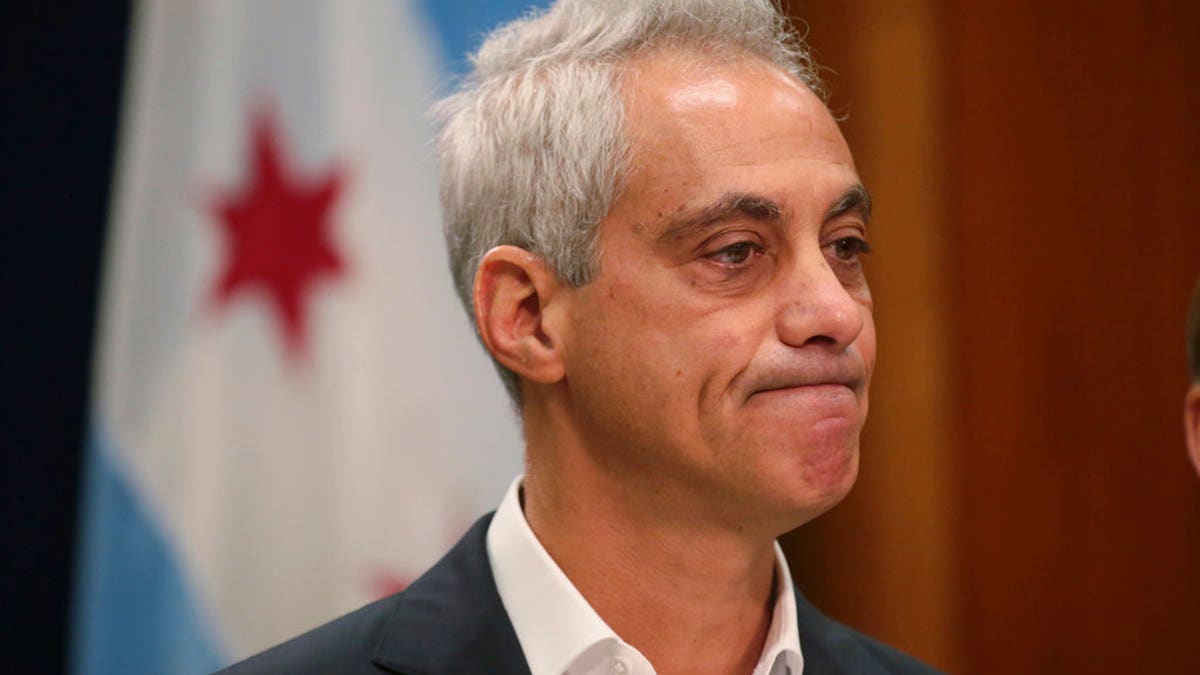
Chicago Mayor Rahm Emanuel announces Tuesday, Sept. 4, he will not seek a third term in office at a press conference on the 5th floor at City Hall in Chicago (Chicago Tribune via AP)
‘It’s the Lord of the Flies on LaSalle Street,” wrote columnist John Kass. In case the references are unclear, whether because high schools haven’t been assigning the William Golding novel in the last few decades or because out-of-towners unaccountably don’t realize that Chicago’s City Hall front is on LaSalle Street, Kass was writing about Mayor Rahm Emanuel’s announcement that he won’t run for a third term next February.
Should readers from outside Chicagoland care? Yes, because Emanuel’s surprise exit is a sign of the unworkability of policies that will go national if Resistance Democrats oust Donald Trump, and indeed of some policies embraced by Trump as well.
Emanuel will be leaving office as a frustrated and unsuccessful mayor, even though he is one of the great political talents of his generation. Former Clinton fundraiser and White House staffer, Chicago congressman and chairman of House Democrats’ campaign committee when they overturned a Republican majority in 2006: He’s done it all.
Chicago's economic foundations are being drained and undermined to provide the generous pensions of long-retired public employees, many of them now in income-tax-free Florida, while public schools are closed, services reduced, police patrols pulled back.
He gave up a House leadership post to be Barack Obama’s first White House chief of staff; he gave that up to run for mayor — the job that every traditional Chicago politician considers far more important than anything “out of town” (said with a derisive curl of lip).
Emanuel’s decision — and his robust victory margin — suggested that he intended to stay at 121 North LaSalle Street about as long as the 20-plus years of the ally he replaced, Richard M. Daley, and Daley’s father before him. Instead he’ll serve just eight.
Emanuel inherited a city whose electorate was divided roughly equally between blacks on the South and West sides, Hispanics on the West and Northwest sides and gentry liberals running ever farther inland from the lakefront. It had a great economic heritage and enjoyed robust growth in the 1990s.
It has been downhill since.
To continue reading Michael Barone on The New York Post click here.
